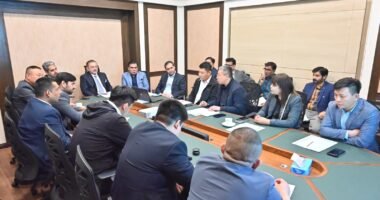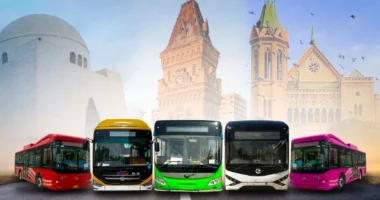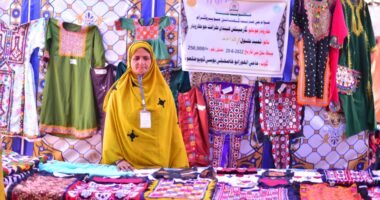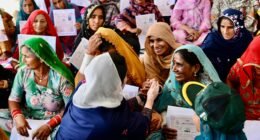
The Benazir Income Support Program (BISP), named after Pakistan’s former Prime Minister Benazir Bhutto, is one of the largest and most successful social safety net programs in Pakistan. Launched in 2008, BISP aims to provide financial assistance to low-income households, alleviate poverty, and empower vulnerable populations, particularly women, in a country where a significant proportion of people live below the poverty line. Over the years, it has evolved into a vital tool for social and economic inclusion.
The BISP was launched by the Pakistan Peoples Party (PPP) government, under the leadership of Asif Ali Zardari, following the tragic assassination of Benazir Bhutto in 2007. The program was conceived as part of the government’s effort to address widespread poverty and inequality, which were exacerbated by economic challenges and natural disasters such as floods and earthquakes.
The core idea behind BISP was to provide direct cash transfers to eligible families, particularly targeting women, and thereby provide a buffer against the worst impacts of poverty. The program sought to ensure that these transfers reached the most vulnerable households, creating a social safety net to foster financial inclusion and economic stability.
Objectives of the Benazir Income Support Program
The primary objectives of the BISP are as follows:
- Poverty Alleviation: The primary goal of BISP is to lift people out of extreme poverty through cash transfers. By targeting the poorest segments of society, the program aims to reduce economic hardship.
- Empowerment of Women: One of the most significant features of BISP is its emphasis on empowering women. Since its inception, BISP has been designed to transfer funds directly to women heads of households, giving them a degree of economic independence and agency.
- Social Protection: BISP functions as a safety net for households facing economic shocks, whether due to natural disasters, inflation, or other unforeseen crises. This protection is critical for families struggling to meet their basic needs.
- Improvement in Human Capital: The BISP is not just about financial support—it also connects beneficiaries to opportunities for improving their skills, education, and health. By providing access to various development programs, BISP aims to break the cycle of poverty over the long term.
- Digital Inclusion: The program has gradually incorporated technology to enhance efficiency, transparency, and outreach. For instance, beneficiaries can now receive payments through mobile wallets, ensuring better access and reducing the risk of corruption.
Key Features and Mechanisms
BISP has undergone several iterations and improvements since its launch, adapting to the evolving needs of Pakistan’s population. Some key features of the program include:
- Cash Transfers: BISP provides unconditional cash transfers to the most vulnerable households in Pakistan. The amount is determined based on the socioeconomic status of the family, and these transfers are made bi-monthly. The transfer amount has seen incremental increases over the years to match inflation and the rising cost of living.
- Eligibility and Targeting: The program uses a poverty scorecard to identify eligible families. This scorecard assesses households based on various factors such as income, assets, and living conditions. The use of this data-driven approach helps minimize leakage and ensures that the transfers reach those who need them the most.
- Women-Centric Focus: Women are the primary beneficiaries of BISP, which not only provides financial support but also promotes their involvement in decision-making processes within the family. In some areas, BISP even provides training and awareness programs aimed at educating women about their rights and opportunities.
- Digital Payments System: To streamline the payment process, BISP has introduced digital systems such as Benazir Debit Cards and mobile wallet transfers. This initiative has helped reduce the potential for corruption and also provided a convenient mechanism for beneficiaries to access funds.
- Education and Health Programs: BISP is not limited to cash transfers alone; it also seeks to enhance the social capital of beneficiaries through conditional cash transfers (CCTs). For example, the program encourages families to keep their children in school and make regular health visits. Beneficiaries who meet these criteria are rewarded with additional financial incentives.
- Partnership with Other Government and Non-Government Agencies: BISP collaborates with various other institutions, including provincial governments, NGOs, and international organizations. These partnerships help extend the reach of the program and improve its impact.
Impact of BISP
Over the years, BISP has significantly improved the lives of millions of Pakistanis. As of 2023, the program reaches over 7 million families, making it one of the largest welfare schemes in the world. Here are some of the key impacts of BISP:
- Poverty Reduction: According to studies, BISP has played a crucial role in reducing poverty levels in Pakistan. The cash transfers have helped improve household income and allowed families to meet basic needs such as food, clothing, and healthcare.
- Improved Education and Health Outcomes: Beneficiaries who have received financial assistance are more likely to keep their children in school and seek regular medical attention. This has contributed to better health outcomes and higher educational attainment, especially for girls.
- Women’s Empowerment: With women receiving cash transfers directly, BISP has enhanced their economic independence. Women have become more involved in household decision-making and have greater control over financial resources, leading to improved social dynamics within families and communities.
- Increased Financial Inclusion: The digital payment mechanism has significantly increased financial inclusion in Pakistan, allowing beneficiaries to access banking services and manage their finances more effectively.
- Response to Natural Disasters: BISP has proven to be a lifeline during times of crisis. In the aftermath of natural disasters, such as floods and earthquakes, the program has quickly mobilized resources to provide urgent financial relief to affected families.
The Benazir Income Support Program stands as a remarkable achievement in Pakistan’s social welfare history. By providing financial assistance to the most vulnerable populations, particularly women, BISP has become an essential tool in fighting poverty and inequality. While challenges remain, the program’s ability to adapt and improve over time is a testament to its significance. As Pakistan faces new economic challenges and global uncertainties, BISP’s role in empowering the marginalized and creating a more inclusive society will be more crucial than ever.
The future of BISP depends on continued reforms, better targeting mechanisms, and ensuring that it remains politically neutral and financially sustainable. However, its legacy as a catalyst for change in Pakistan’s social policy is firmly established, and it stands as a beacon of hope for the country’s most disadvantaged populations.












